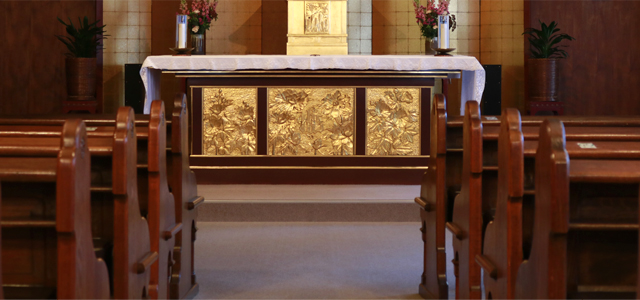
Catholic Q&A
My working husband suddenly collapsed and passed away. In cases of those who die in the midst of their work, would it be okay to ponder over their deaths? The Bible says “death is the result of sin.” Does that mean my husband died because of his sins?
It is heartbreaking to hear of your loss. I have already covered the significance of death a number of times, but yet in view of the seriousness of your question I shall venture to answer.
The first thing we need to be aware of is that in the Bible the word ‘death” is used with two different connotations. The first is physical death which signifies the end of life, and the other is death with reference to the life of God, which is brought about by separation from God. In the Bible, Paul in his letter to the Romans makes the following statements. “Therefore, just as sin entered the world through one man, and death through sin, and in this way death came to all people, because all sinned.” (Romans 5:12). Also, “For the wages of sin is death, but the gift of God is eternal life in Christ Jesus our Lord.” (Romans 6:23). In these passages Paul declares that the death mentioned here is the fact that due to the power of sin, the life of God within human beings gets smothered so to speak. This sort of death is the evil we ought to truly fear. However Paul at the same time declares that this death has been overcome through the death of Christ. He says, “Now if we died with Christ, we believe that we will also live with him” (Romans 6:8). According to Paul, God destroyed the “sting of death” (1 Cor. 15:55) through the death of Christ.
Hence, we need to make a clear distinction between death as the end of life and death as a separation from God. The death of your husband was the end of his life on this earth, and so it is not at all a death brought about by separation from God, which is the result of sin. Death certainly threatens the meaning of human life from its very roots. Regardless of how intensely we may work, death instantly questions the significance of what we have accumulated so far. Regardless of how intimate we might have been with certain people, death is a separation wherein they will never be seen in this world again. That is the reason why we should never be deceived by the secularism of this world, which views the world as having an absolute value. Our lives upon this earth, all our achievements, all our beauty and our good health, will one day pass away.
Although we exist in a world that is transient and passing, yet the Gospel of Christ calls on us to live by paying heed to things that do not pass away. True value does not lie in positions or honors that draw the envy of the world’s people. Neither does it lie in triumphs or successes. All such objects are transient and passing. True value is the type that is esteemed before God. It is the type of value that never passes away, and according to Christian faith, it is none other than love. (Please refer to 1 Cor. 13:1 et seq.).
What matters is the extent to which a person has lived with love towards God and his fellowmen, for that is what will come to fruition as eternal life.
We have no way of judging the extent to which your husband loved God and his fellowmen, since it is God alone who has knowledge of the depths of the human heart. The most we can do for those who have passed away is to commend them to the mercy of God. What we need to bear in mind however is the fact that God alone created each and every human being, and more than anyone else it is he who desires the happiness of each and every person. If you desire your husband’s life to have been a meaningful one, would not God desire it even more than you? God is the one who guides each and every one of us with our immeasurable plans, and provides meaning to each and every life.
